I discovered Thailand only 2 years ago and I fell in love with the country. I island-hopped, explored Bangkok, and checked a major bucket-list item: dive with turtles in Koh Lanta. It is one of the most vibrant and beautiful places I’ve ever visited. Often referred to as the “land of smiles,” there is so much to offer travelers in this beautiful and bustling country.
Thailand is always welcoming, despite receiving hordes of tourists all year round. Thailand’s majestic temples pull you in, and you can’t help but be drawn to the history of it all. Thailand’s pristine and turquoise waters are magical, warm, and incredibly photogenic which add the perfect touch to a dream holiday.
Best time to visit
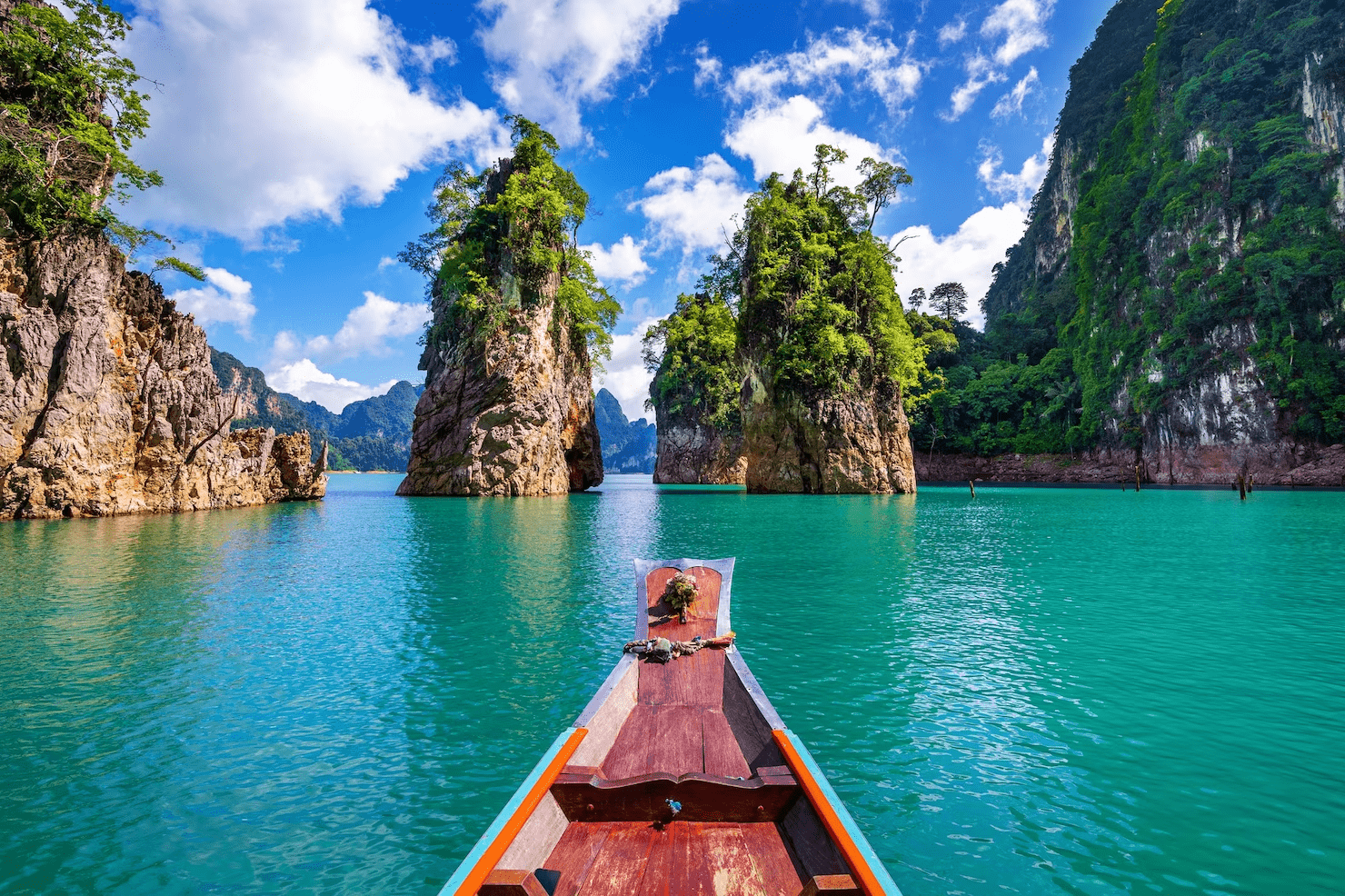
The best time to visit Thailand is from November till early April during the dry season when temperatures are cooler. The only drawback is that it’s also Thailand’s peak tourist season. This means higher prices for flights and accommodations, as well as crowded beaches in Phuket and Krabi.
To avoid the crowds, consider visiting Thailand between May and October. Although you may encounter frequent but brief rainstorms, you’ll benefit from more affordable flights and lower hotel prices.
Find more details in my post on The Best Time to Travel to Thailand!
WHAT TO EXPECT
Language: The official language in Thailand is Thai. English is widely spoken, especially in the tourism industry.
Currency: The currency of Thailand is the Thai Baht (THB).
Credit Cards & ATMs: In Thailand’s major cities, such as Bangkok and Phuket, ATMs are readily available, and most businesses accept credit cards. However, if you plan to shop at local markets, be sure to have cash on hand for your purchases.
Safety: I believe Thailand is one of the safest destinations for solo travelers. While it’s important to stay mindful of your surroundings, the most common concerns are typically petty theft and tourist scams.
Transportation: In Thailand, try river and canal boats in Bangkok for unique views, or rent motorbikes in smaller towns and islands if you have the proper license and insurance. Use songthaews or tuk-tuks for short distances, agreeing on fares beforehand. Trains are a scenic and comfortable option, especially for overnight trips, while ferries and speedboats are ideal for island hopping.
Latest articles
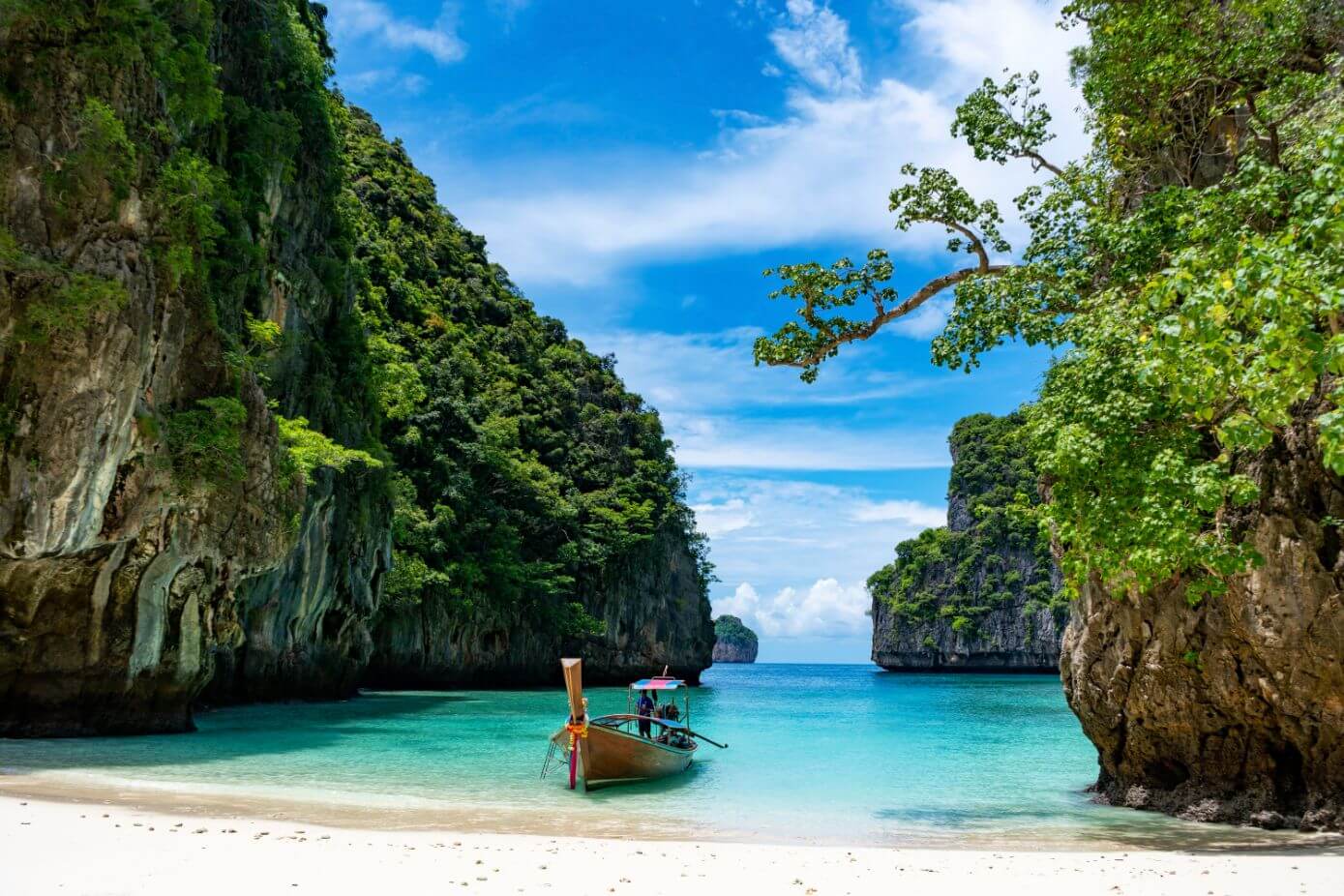
Thailand’s Visa Requirements: A Detailed Guide for Tourists
Embark on an adventure to Thailand, a land of captivating landscapes and rich culture. Before diving into the wonders of …
READ MORE >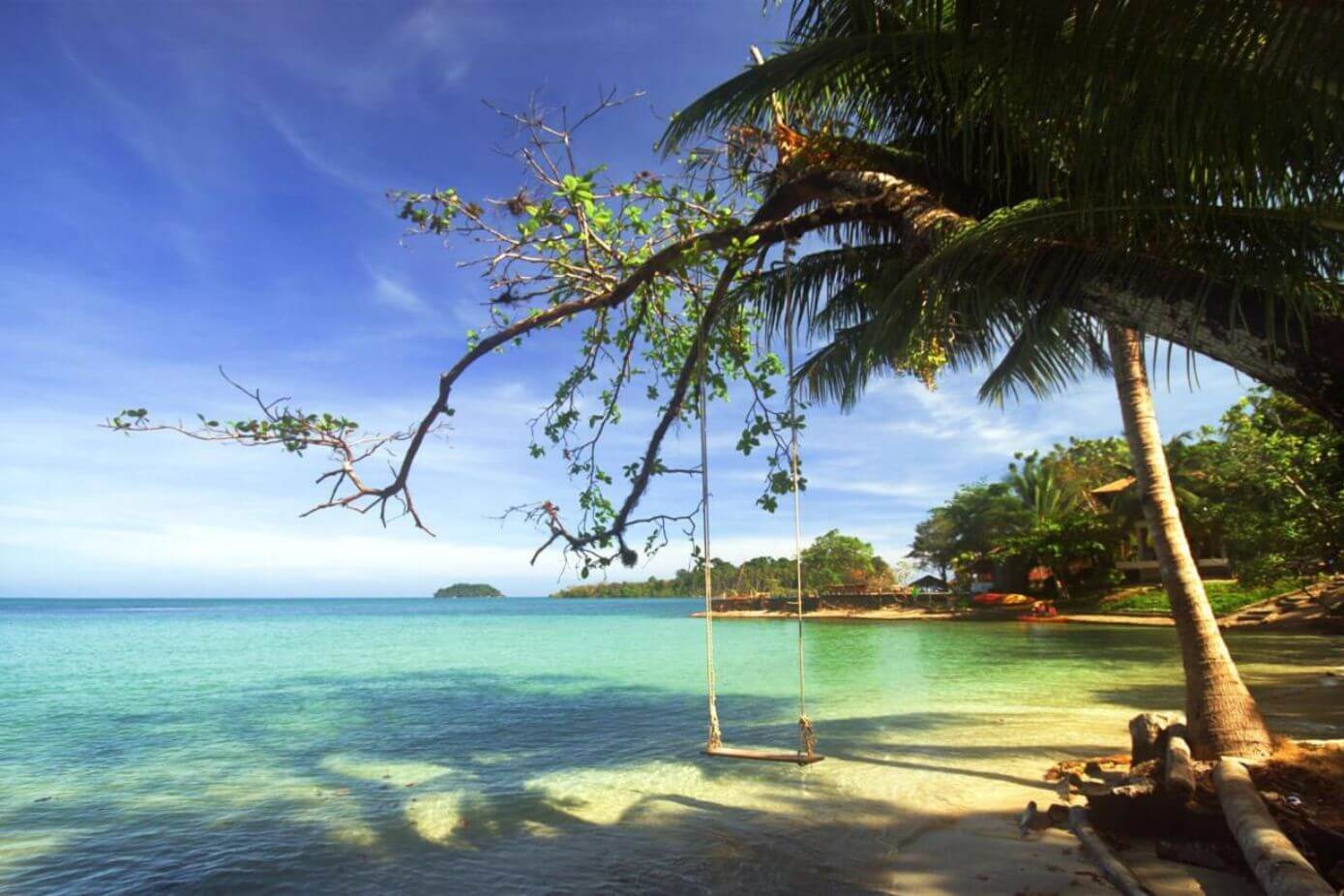
The 8 Absolute BEST Beaches in Thailand
Nestled amidst the azure waters of the Andaman Sea and the Gulf of Thailand, Thailand’s beaches have earned worldwide acclaim …
READ MORE >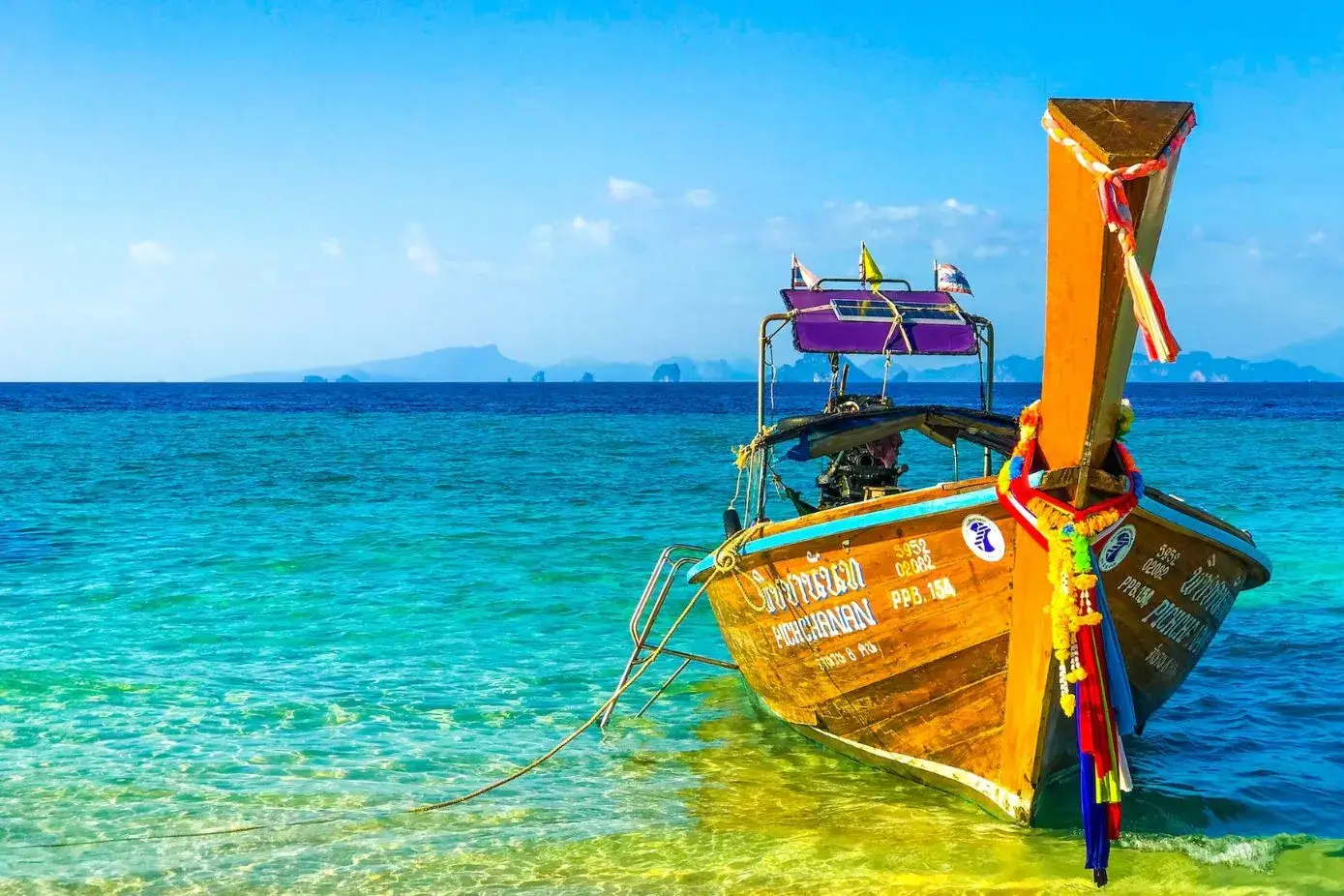
14 Best Things to Do in Thailand
Thailand is a country of temples, green jungles, and tropical islands with amazing beaches chosen by many tourists each year. …
READ MORE >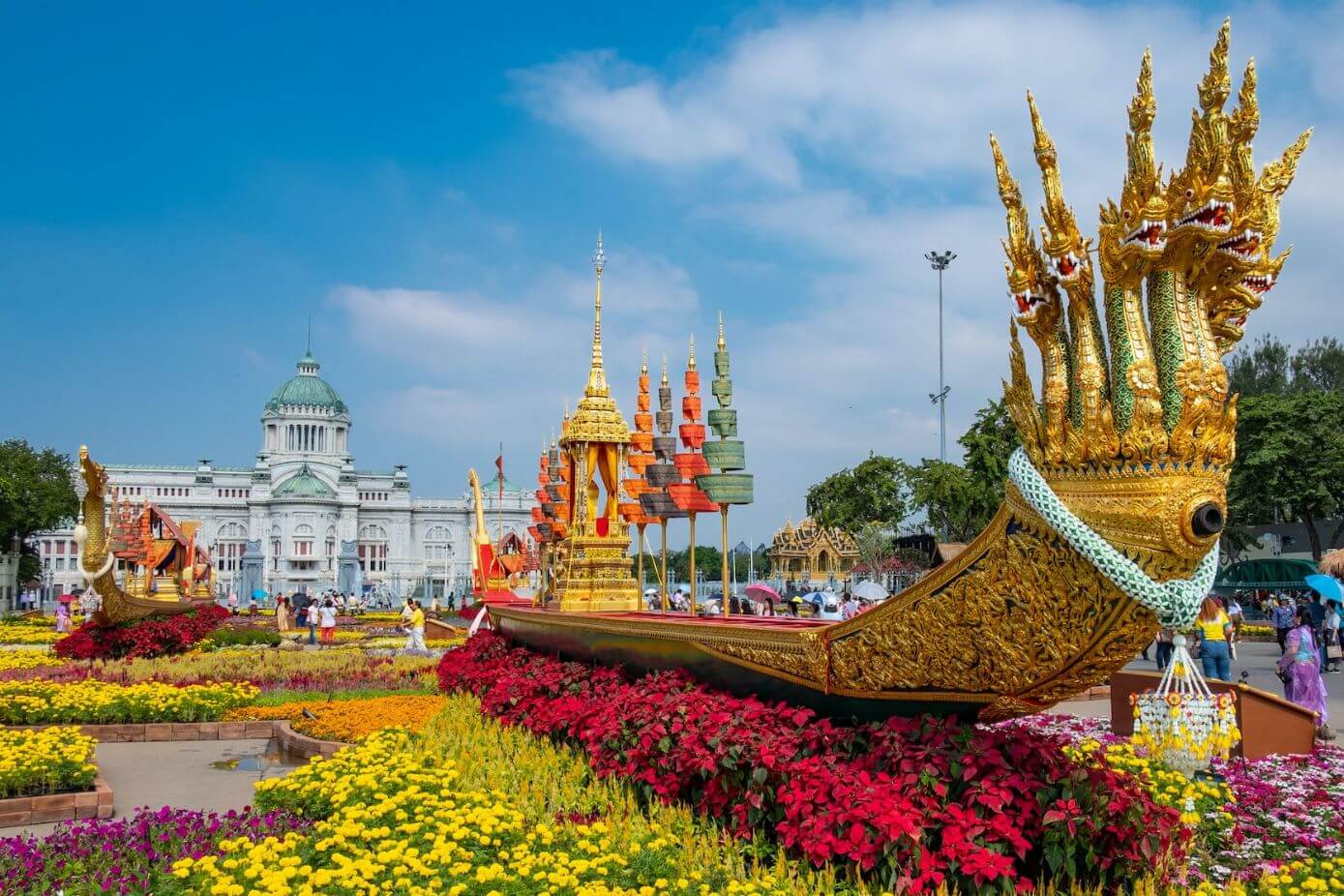
The 15 Best Things to Do in Bangkok
You’re planning to visit Bangkok during your next trip and you want to know what to do in the Thailand capital city …
READ MORE >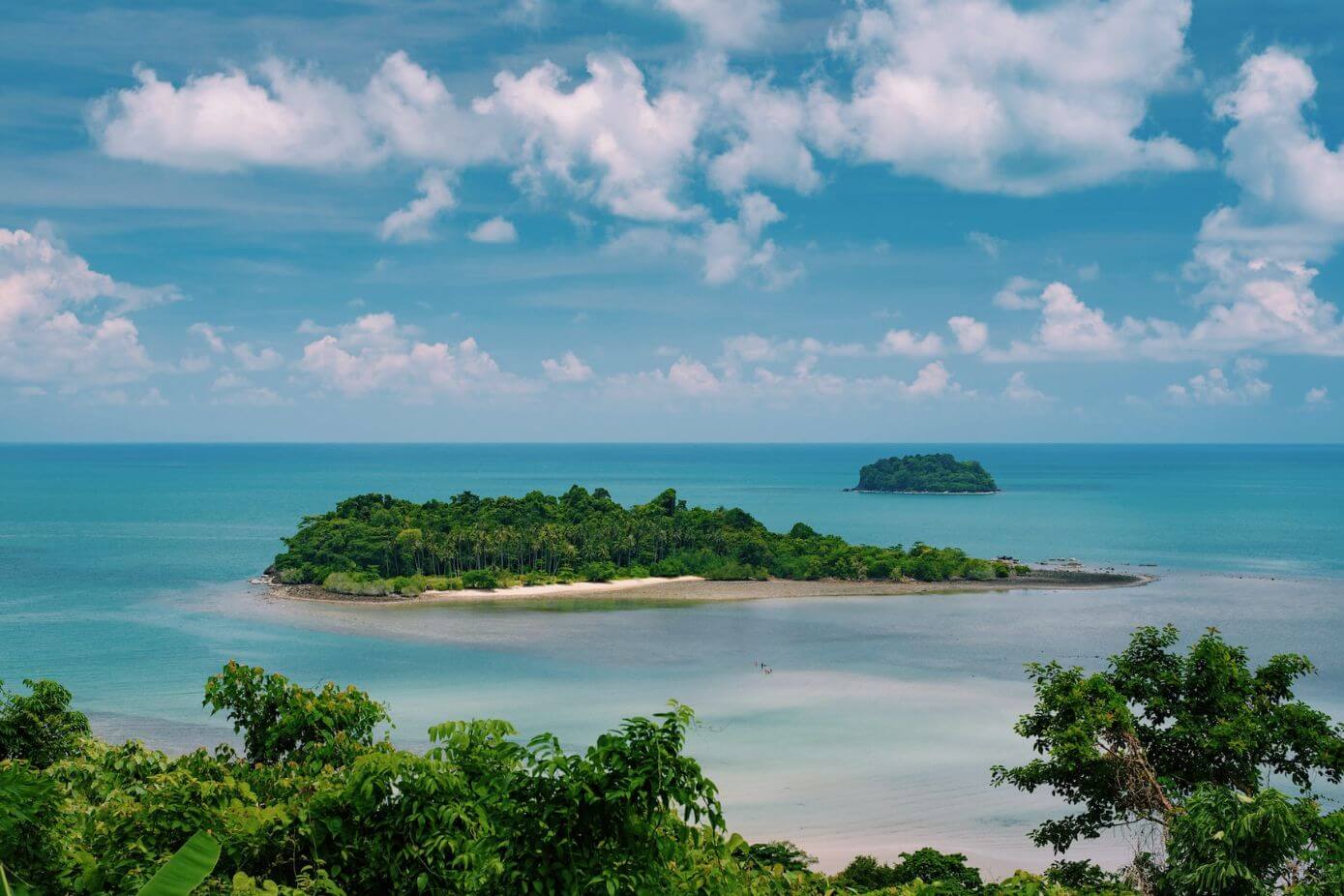
Top 10 Best Islands to Visit in Thailand
Thailand has hundreds of islands : white sand, beach shacks, a swing between two palm trees and a turquoise sea… …
READ MORE >
Thailand Packing List – 8 Essential Things to Pack for Thailand
Traveling to Thailand for the first time or not, you’re maybe wondering what essential things you need to pack for …
READ MORE >
Best Time to Visit Thailand
Although the climate varies throughout Thailand, you can visit the country all year round. The best time to visit Thailand …
READ MORE >
